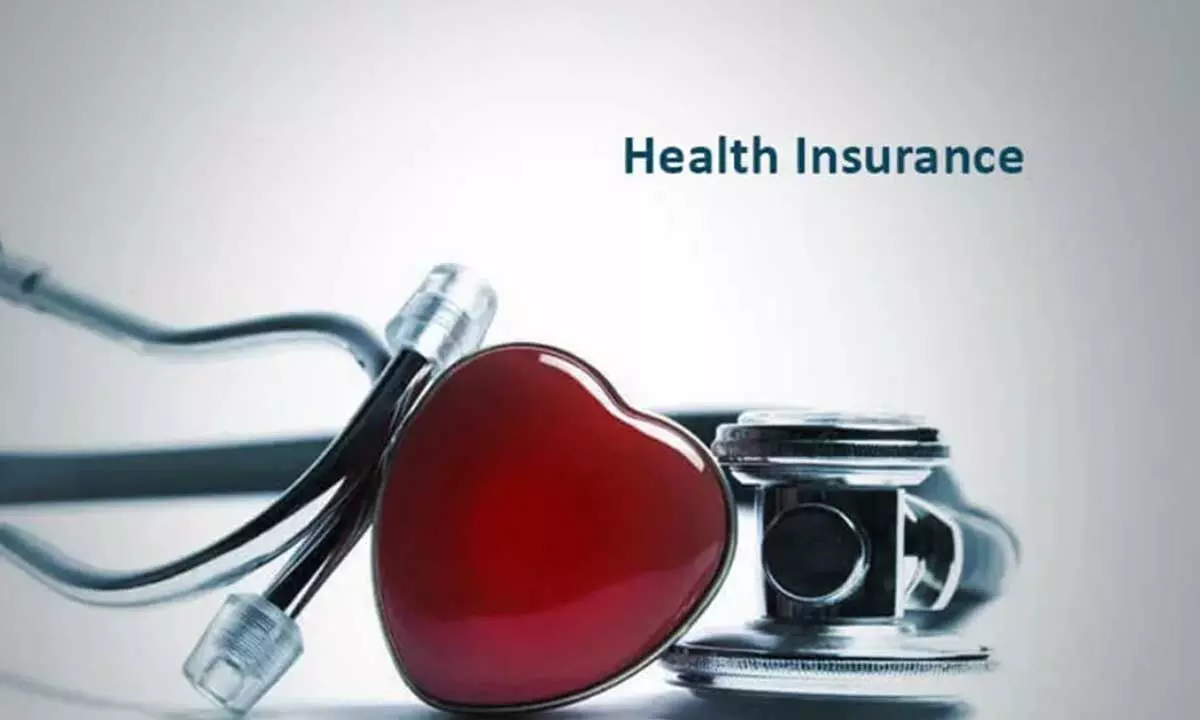Understanding Cashless Health Insurance: Benefits and How It Works

With rising healthcare costs, many people seek ways to avoid paying large hospital bills upfront during medical emergencies. One common question is how cashless health insurance can help with this.
New Delhi [India] : With rising healthcare costs, many people seek ways to avoid paying large hospital bills upfront during medical emergencies. One common question is how cashless health insurance can help with this. It allows you to get treated without worrying about immediate payments, as the insurer settles the bill directly with the hospital. This post explains how it works and why it’s important to protect your finances during unexpected health issues. By understanding this, you’ll be better prepared to choose the right policy and manage health costs smoothly.
What is Cashless Health Insurance?
Cashless health insurance is a facility where the insured cannot pay any hospital bills upfront during treatment. Instead, the insurance company directly settles the medical expenses with the network hospital. The insured can leave the hospital without worrying about hefty bills, knowing their policy covers them. This option eliminates the need for the insured to pay out of pocket and wait for reimbursement, making it a hassle-free experience in times of stress.
How Does Cashless Health Insurance Work?
When you purchase a cashless health insurance plan, the insurance company provides a list of network hospitals where this benefit can be availed. These hospitals are carefully selected after a detailed evaluation of the medical services offered and their credibility. In case of hospitalisation, planned or emergency, the insured must inform the insurer and follow the formalities laid out by the third-party administrator (TPA).
The TPA coordinates between the hospital and the insurance company, ensuring the cashless claim is processed smoothly. Once the treatment is completed, the hospital directly settles the bill with the insurance company, and the insured is only liable for costs that exceed the sum insured or fall under exclusions.
Benefits of Cashless Health Insurance
1. No Immediate Financial Burden: The primary advantage of cashless health insurance is that it relieves the insured from the pressure of arranging funds during an emergency. Whether it's an accident, a sudden illness, or planned surgery, you can focus on getting the necessary treatment without worrying about bills.
2. Quick and Seamless Process: The process for claiming cashless treatment is usually faster compared to traditional reimbursement methods. Since the bills are settled directly between the hospital and the insurer, collecting and submitting a mountain of documents post-treatment is unnecessary.
3. Access to Quality Healthcare: With rising medical costs, many people hesitate to seek proper treatment for fear of expenses. Cashless health insurance ensures you can access top-notch healthcare services without financial concerns. This can make a significant difference in the quality of care you receive.
4. Cover for Pre and Post-Hospitalisation: Most cashless health insurance plans cover not only in-patient expenses but also the costs incurred before and after hospitalisation, such as diagnostic tests, follow-up consultations, and medications.
5. Emergency Situations: Arranging funds on short notice can be challenging. With cashless health insurance, you or your family can rush to a network hospital and start treatment immediately, knowing the insurer will handle the financial aspect.
Types of Cashless Health Insurance Plans
When choosing cashless health insurance, selecting the right plan based on your individual or family’s healthcare needs is essential. Here are some common types:
● Individual Health Insurance: Ideal for single-person coverage, this plan ensures comprehensive medical care for an individual.
● Health Insurance Plans for Family: These plans cover multiple family members under a single policy, providing a shared sum insured for all. Such plans are ideal for families looking for comprehensive coverage at an affordable premium.
● Critical Illness Plans: These plans are designed to cover major illnesses like cancer, heart disease, or organ failure, offering a lump sum payment upon diagnosis.
● Top-Up and Super Top-Up Plans: These plans provide additional coverage when your base health insurance sum insured is exhausted. Super top-up plans, in particular, offer more extensive protection.
How to Choose the Right Health Insurance Plan for a Family?
With numerous options, selecting the right health insurance plan can be overwhelming. Here are some tips to help you make an informed decision:
● Assess Your Needs: The first step is to assess your family member's healthcare needs. If someone has a pre-existing condition, choose a plan that offers comprehensive coverage for related treatments.
● Look for an Extensive Network of Hospitals: Ensure your insurance provider has an extensive network of hospitals nationwide. This ensures you have access to cashless treatments, even in emergencies, without being restricted to a limited number of hospitals.
● Understand the Inclusions and Exclusions: Always read the policy documents carefully to know what’s covered and what’s not. Knowing the inclusions and exclusions can help avoid surprises when making a claim.
● Check the Claim Settlement Ratio: Opt for an insurance provider with a high claim settlement ratio. This ratio indicates the company’s efficiency in processing and settling claims, crucial for smooth transactions during emergencies. For instance, Bajaj Allianz General Insurance Company has a claim settlement ratio of around 90% for the past few years.
Documents Required for Cashless Hospitalisation
For a smooth cashless claim process, it is essential to have all the necessary documents in place. Typically, the following documents are required:
● Cashless hospitalisation claim form
● Original hospital bill and receipts
● Discharge summary
● Lab reports and doctor’s prescription
● Know Your Customer (KYC) form
For more detailed requirements, refer to your insurance provider’s policy documents or contact customer support.
Cashless health insurance is not just a financial safety net but a tool that ensures timely access to quality healthcare without the hassle of handling expenses upfront. Knowing that your health and loved ones are protected brings peace of mind in uncertain times. Whether you’re looking for individual coverage orhealth insurance plans for family, choosing a provider with a good claim settlement ratio can make all the difference. As medical costs continue to rise, having a reliable health insurance plan ensures that financial worries never hinder your health.
Standard T&C Apply
Disclaimer: The content on this page is generic and shared only for informational and explanatory purposes. It is based on several secondary sources on the internet and is subject to changes. Please consult an expert before making any related decisions.
Insurance is the subject matter of solicitation. For more details on benefits, exclusions, limitations, terms, and conditions, please read the sales brochure/policy wording carefully before concluding a sale.
Claims are subject to terms and conditions set forth under the health insurance policy.
(No Hans India Journalist was involved in creation of this content)




